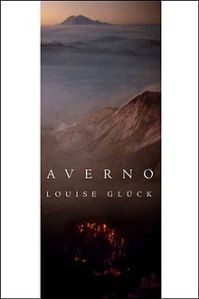Nell’occasione dell’assegnazione del Premio Nobel per la Letteratura 2020 a Louise Glück riproponiamo le traduzioni di Anna Maria Curci e Gianni Montieri di tre poesie tratte dalla raccolta Averno del 2006.

The Night Migrations
This is the moment when you see again
the red berries of the mountain ash
and in the dark sky
the birds’ night migrations.
It grieves me to think
the dead won’t see them–
these things we depend on,
they disappear.
What will the soul do for solace then?
I tell myself maybe it won’t need
these pleasures anymore;
maybe just not being is simply enough,
hard as that is to imagine.
Le migrazioni notturne
Questo è il momento in cui rivedi
le bacche rosse del sorbo selvatico
e nel cielo scuro
le migrazioni notturne degli uccelli.
Mi addolora pensare
che i morti non le vedranno –
queste cose dalle quali dipendiamo
scompaiono.
Che cosa farà l’anima allora per trovar conforto?
Mi dico che forse non avrà più bisogno
di questi piaceri;
forse non essere, e nient’altro, basta, semplicemente,
per quanto sia arduo immaginarlo.
(traduzione di Anna Maria Curci e Gianni Montieri)
Crater Lake
There was a war between good and evil.
We decided to call the body good.
That made death evil.
It turned the soul
against death completely.
Like a foot soldier wanting
to serve a great warrior, the soul
wanted to side with the body.
It turned against the dark,
against the forms of death
it recognized.
Where does the voice come from
that says suppose the war
is evil, that says
suppose the body did this to us,
made us afraid of love–
Lago craterico
C’è stata una guerra tra il bene e il male.
Abbiamo deciso di chiamare il corpo il bene.
Questo ha reso la morte il male.
Ha fatto ribellare l’anima
contro la morte, completamente.
Come un fante che vuole
servire un grande guerriero, l’anima
ha voluto schierarsi con il corpo.
Sì è ribellata contro il buio,
contro le forme di morte
che riconosceva.
Da dove arriva la voce
che dice supponi che la guerra
sia il male, che dice
supponi che sia stato il corpo a farci questo,
ci abbia resi timorosi dell’amore –
The Evening Star
Tonight, for the first time in many years,
there appeared to me again
a vision of the earth’s splendor:
in the evening sky
the first star seemed
to increase in brilliance
as the earth darkened
until at last it could grow no darker.
And the light, which was the light of death,
seemed to restore to earth
its power to console. There were
no other stars. Only the one
whose name I knew
as in my other life I did her
injury: Venus,
star of the early evening,
to you I dedicate
my vision, since on this blank surface
you have cast enough light
to make my thought
visible again.
La stella della sera
Stasera, per la prima volta in molti anni,
mi è apparsa nuovamente
una visione dello splendore della terra
nel cielo vespertino
la prima stella sembrava
crescere in fulgore
man mano che la terra si oscurava
fino a non poter diventare infine più buia ancora.
E la luce, ch’era la luce della morte,
pareva restituire alla terra
il suo potere consolatorio. Non c’erano
altre stelle. Solo quella
di cui conoscevo il nome
come nell’altra mia vita le recai
offesa: Venere,
stella del vespro,
a te dedico
la mia visione, ché su questo suolo spento
hai gettato quanta luce basta
a rendere il mio pensiero
visibile di nuovo.
Louise Glück, Averno, Farrar, Straus and Giroux, 2006
(traduzione di Anna Maria Curci)

2 risposte a “Louise Glück, Premio Nobel per la Letteratura 2020. Rileggere tre poesie da “Averno””
L’ha ripubblicato su Paolo Ottaviani's Weblog.
"Mi piace"Piace a 1 persona
Ecco anche un mio contributo:
The Past
Small light in the sky appearing
suddenly between
two pine boughs, their fine needles
now etched onto the radiant surface
and above this
high, feathery heaven—
Smell the air. That is the smell of the white pine,
most intense when the wind blows through it
and the sound it makes equally strange,
like the sound of the wind in a movie—
Shadows moving. The ropes
making the sound they make. What you hear now
will be the sound of the nightingale, Chordata,
the male bird courting the female—
The ropes shift. The hammock
sways in the wind, tied
firmly between two pine trees.
Smell the air. That is the smell of the white pine.
It is my mother’s voice you hear
or is it only the sound the trees make
when the air passes through them
because what sound would it make,
passing through nothing?
Louise Glück
Il passato
Una lama di luce sottile appare nel cielo
improvvisa fra
due rami di pino i cui aghi sottili
s’incidono nella radiata superficie
e su nell’alto
cielo piumato –
Odora l’aria. È l’odore del pino strobo,
più intenso se il vento gli soffia fra i rami
e il suono che fa è altrettanto strano,
eguaglia quello del vento in un film –
Ombre agitate. Le corde
danno il loro suono abituale.
Quello che odi adesso
sarà forse il canto dell’usignolo, i Vertebrati,
il canto del maschio che corteggia la femmina –
Le corde scorrono. L’amaca
oscilla al vento, legata
stretta tra due tronchi di pino.
Odora l’aria. Questo è l’odore del pino strobo.
È la voce di mia madre quella che odi
o è solo il suono che fanno gli alberi
quando l’aria li va frugando
perché poi che suono farebbe,
l’aria, se frugasse nel nulla?
(Trad. N. Muzzi)
"Mi piace""Mi piace"